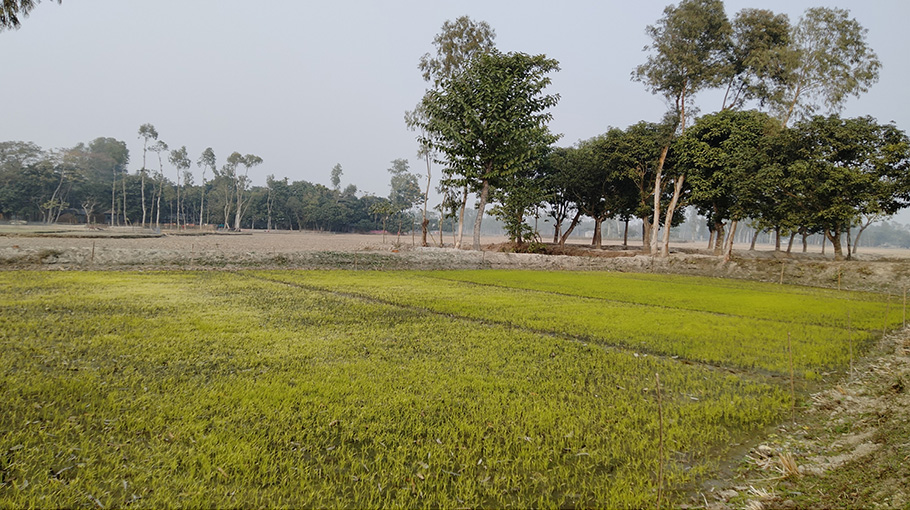Dense fog damages paddy seedbed, Kurigram farmers seek remedy

Due to heavy fog and severe winter in Ulipur Upazila of Kurigram, Boro paddy seed bed has been damaged to a large extent.
Seedlings of Boro paddy are fading and turning yellow and reddish in color. Winter and fog threaten seedbeds before planting. Farmers are worried in this situation. Boro cultivation can be disrupted. However, the Agriculture Office says farmers are being advised.
On the surface, it can be seen that Boro paddy seedbeds have been destroyed in various unions including Narikel Bari, Ramdas Dhaniram, Gunaigach Union's Mahideb, Kathanalbari, Char Gabertal, Thetrai Union's Harunefra, Satdarga.
According to Ulipur Upazila agriculture office sources, the target of Boro rice has been set at 22 thousand 350 hectares in the current season, seeding has been done on 1 thousand 440 hectares of land. So far 1 thousand 85 hectares of land have been planted.
Ershadul Habib, a farmer of Narikel Bari area of the city, said, I will plant boro paddy on about 6 acres of land. Every time we sell the remaining rice seedlings after planting at the end, maybe not this time. Because since the last week of December, due to heavy fog and winter, the seedlings are dying.
Raihan Mia, a farmer from Mahidev area of Gunaigach Union, said that the condition of my seedbed is very bad, I don't know what to do now. Treatment is not working. I'm a farmer, I can't find a way.
Badsha Miah, a farmer of Harunefra village in Thetrai union, said that the paddy field is getting damaged due to severe cold. The rice seeds are not growing and the leaf color has turned pale.
Tuhin Miah, official of Rajarhat Agricultural Meteorological Observatory, said that the lowest temperature in the district was recorded at 10 degrees Celsius on Monday morning. However, the temperature may rise in the next few days.
Upazila Agriculture Officer and agriculturist Mosharraf Hossain said that farmers are preparing to plant boro paddy. The fog and cold have been increasing for quite some time but the seedbed has not been damaged much. There is still time to solve this problem if the weather changes.
Various suggestions are being given to the farmers including covering the seed beds with polythene at night, storing water at night and draining it in the morning and re-irrigating through deep tube wells.




